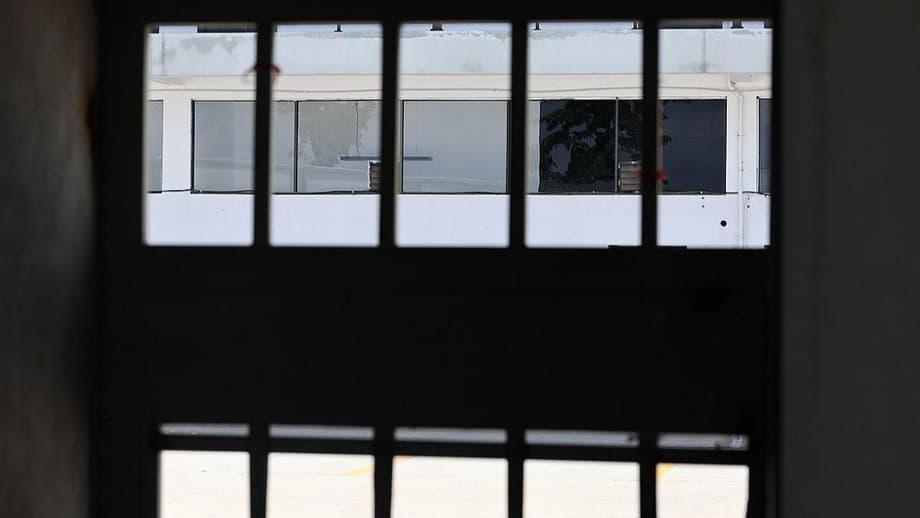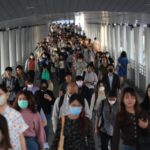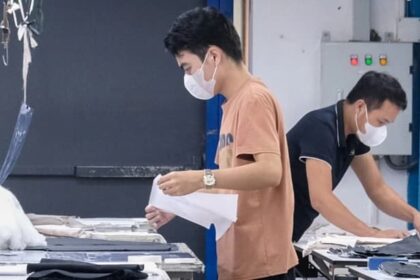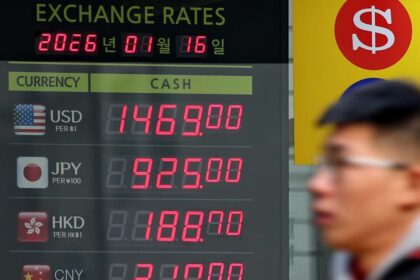A surge in disappearances tied to Cambodia scam networks
New travel and immigration data from South Korea has set off alarm over the fate of citizens in Cambodia. Government figures show large gaps between the number of people who left for Cambodia and those who came back. The difference reached 3,209 in 2022, 2,662 in 2023, and 3,248 in 2024, after just 113 in 2021. From January to August this year, 67,609 people departed for Cambodia and 66,745 returned, leaving 864 unaccounted for in that period. These totals do not prove that thousands are missing in the criminal sense. They do indicate that many have not returned through recorded channels, a red flag in a year when job scam networks in Cambodia have grown into a public safety crisis.
- A surge in disappearances tied to Cambodia scam networks
- How the entry exit numbers fuel concern
- Inside the scam compounds
- The death that shocked South Korea
- Seoul’s emergency response
- Cambodia’s stance and international pressure
- Why Cambodia became a hub
- How victims are lured and trapped
- Advice for families and travelers
- Key Points
The issue burst into national view after the August death of a 22 year old college student from South Korea, whose body was found in Kampot Province. Authorities said he died of cardiac arrest after severe torture. His killing set off a wave of anger at home and prompted urgent steps by officials in Seoul, who imposed travel bans on specific Cambodian regions and launched efforts to locate and retrieve citizens caught up in scam compounds.
Discrepancies in cross border data deepen the concern. Cambodian immigration statistics recorded 192,305 South Korean entries last year, nearly double the 100,820 departures to Cambodia recorded in South Korea. Some travelers reach Cambodia via third countries, which can mask the picture. Lawmakers and investigators worry that a share of the non returnees have been drawn into online scam operations, where acquaintances and former workers have described dozens of Koreans per site and estimated that 2,000 to 3,000 might be involved. The true figure is uncertain, yet the pattern is driving a forceful government response.
How the entry exit numbers fuel concern
Most South Koreans who travel to Cambodia for tourism or business return home without incident. A gap between departures and arrivals can reflect people staying longer, moving onward to another country, or relocating. The sharp rise in non returnees since 2021, paired with a spike in abductions and detentions around scam sites, stands out. It signals a shift toward riskier travel and a growing pull from criminal enterprises that target foreign language speakers.
The data has prompted calls in South Korea for a meticulous review. Legislators have urged the government to compare individual entry and exit records with police and consular data to pinpoint those most at risk and to avoid double counting. Officials say that, of the 330 people reported missing or held against their will after entering Cambodia in the first eight months of the year, most cases have been resolved. Roughly 80 people remain unaccounted for, while about 60 South Koreans are in Cambodian detention after raids on suspected scam centers.
There are also structural reasons for the statistical gaps. Many travelers fly through Thailand, Vietnam, or China before crossing into Cambodia by land, which means their initial departure record does not list Cambodia as the destination. Criminal networks exploit these routes. Recruiters have steered targets through third countries and moved them by bus to border towns, making it harder for families and authorities to trace the path once someone goes silent.
Inside the scam compounds
Online fraud centers across parts of Southeast Asia have expanded since the pandemic. Analysts estimate about 200,000 people are working in scam operations in Cambodia, with roughly 1,000 South Koreans among them. Survivors describe compounds run by transnational groups, many linked to Chinese organized crime. Recruits are drawn in by offers of high pay and free housing, then forced to defraud people in their native language. Accounts from Koreans rescued from these sites describe brutal conditions that include beatings, electric shocks, forced drug use, sexual coercion, and threats of organ trafficking. Several said Chinese supervisors controlled the compounds and punished those who failed to meet quotas.
The schemes are varied but share common tactics. Romance confidence schemes, often called pig butchering, groom victims over weeks before pushing fake investments. Sextortion networks extract money by threatening to release intimate images. Teams also run cryptocurrency cons and bogus trading platforms. The scale is vast. Authorities and international agencies say scammers stole at least 10 billion dollars from victims in the United States last year. South Korean losses from online investment and romance fraud were estimated at around 148 million dollars in 2023. The profits keep the compounds flush with cash and able to bribe guards, move locations, and recruit new victims.
Some people have traveled to Cambodia knowing they will engage in illegal activity and hoping for fast money. Many others were deceived by recruiters and then locked into forced labor. Workers have reported being sold between compounds when they tried to resist, while those who underperform face escalating violence. Allegations of people being sold to crime syndicates, and even of organ removal, have fueled public fear. Such claims are difficult to verify case by case, yet repeated testimonies have made clear that cruelty and coercion are common tools inside the compounds.
The death that shocked South Korea
The case that galvanized the South Korean public involved university student Park Minho, whose body was discovered near the Bokor Mountain area in Kampot Province. Investigators said he died of a heart attack brought on by severe torture. His family had received a ransom call. Cambodian authorities charged several suspects with murder and online fraud. The case dominated headlines in South Korea and put a spotlight on the risks that began with a fake job offer and ended in fatal abuse.
Following the discovery, South Korea summoned the Cambodian ambassador and demanded action. Officials rushed to coordinate the return of Park Minho’s remains and pressed for a broader crackdown on the compounds. The death exposed the fragility of young job seekers lured by ads promising quick earnings overseas, and it hardened public support for tighter travel controls and stronger police cooperation.
Seoul’s emergency response
Seoul raised travel warnings and, for the first time in this crisis, issued a code black travel ban for specific Cambodian hotspots. The prohibition covers the Bokor Mountain area in Kampot Province, Bavet City, and Poipet City, all linked to compound activity and confinement of foreigners. Citizens are being urged to cancel trips to these locations and warned that entering restricted zones can lead to penalties under the Passport Act and other laws. Authorities also said they will step up work with recruitment platforms to remove fake overseas job postings and strengthen screening so that fraudulent employers cannot easily target Koreans.
South Korea assembled an emergency task force led by the national security office and sent a special team headed by a vice foreign minister to Phnom Penh. The government moved to bring home those detained by Cambodian authorities during recent raids, arranging for a chartered flight. Sixty four South Koreans returned under police escort and now face questions at home. Investigators are probing whether each person was coerced or willingly joined. Those found to have committed crimes will face prosecution under Korean law, with officials emphasizing that victim status and criminal liability are not the same thing and require careful case by case review.
Officials acknowledged that early reports listed about 330 people missing or held against their will in Cambodia this year, but most of those cases have been traced. About 80 remain unaccounted for, while roughly 60 people are in Cambodian detention from anti scam operations. Seoul says it will continue case tracking, search for missing citizens, and arrange further repatriations in coordination with Cambodian authorities.
Cambodia’s stance and international pressure
Phnom Penh has signaled readiness to deport South Koreans rescued from compounds or arrested during raids. Senior Korean and Cambodian officials met in recent days, including a session with Prime Minister Hun Manet, to discuss the crisis. Cambodian officials say they prefer bilateral cooperation and are moving detainees through deportation channels. Both sides issued statements about joint efforts against transnational crime, even as tensions linger over the slow pace of investigations and the need to dismantle the money behind the networks.
Pressure on the ecosystem around the compounds is rising beyond Cambodia. The United States and the United Kingdom imposed sanctions on a Phnom Penh based conglomerate accused of enabling scam networks, and U.S. prosecutors indicted its chairman. Investigators say they seized roughly 15 billion dollars in cryptocurrency linked to fraudulent operations and alleged bribes to local authorities. China conducted crackdowns earlier this year that led to repatriations from Myanmar, pushing many operators to relocate. The enforcement map is now shifting across borders, which complicates national responses.
South Korea says it will raise the issue at regional gatherings, including ASEAN meetings, to build cooperation on arrests, extraditions, data sharing, and victim support. Scam groups recruit across countries and move people through border towns. Lasting progress will require cross border investigations and financial tracking that can cut off laundering channels and punish those who fund and protect the compounds.
Why Cambodia became a hub
Criminal groups followed opportunity. When China tightened controls on gambling and online fraud, many syndicates shifted to Southeast Asia, where enforcement is uneven and borderlands offer escape routes. Cambodia’s border cities and special economic zones provided access to land, power, and internet service for large office style compounds. Casinos and private security in some zones created cover. Corruption made it easier for syndicates to operate and to warn one another about upcoming raids. The result was a patchwork of sites where hundreds of workers could be housed, trained, punished, and rotated as needed.
Cambodian authorities have staged raids and detentions, including recent actions that swept up dozens of South Koreans. Networks adapt quickly. Operators change buildings, move workers at night, and reopen in neighboring countries. Investigators say some call centers now appear in parts of Myanmar, while others have been reported as far away as the Middle East, West Africa, and Central America. The shift confirms that this is a mobile enterprise that follows weak oversight and fast profits.
How victims are lured and trapped
Recruiters offer high paying roles like customer service, digital marketing, or sales support, often with free flights and housing. Scammers contact targets by messaging apps, social media, and jobs websites. Once a person sends copies of their passport and commits to travel, the recruiters book routes through multiple countries. At the destination, phones and passports may be taken. Guards warn that workers owe debts for transport and lodging. People who resist are threatened with violence or with being reported to immigration authorities.
Compounds incentivize fraud with bonuses for victims and punish workers for missing quotas. Supervisors script conversations and use fake profiles across dating apps and investment chat groups. Families back home sometimes get ransom calls or videos showing beatings. The goal is to squeeze money from both directions, through online fraud and through extortion of relatives. A few workers manage to escape and reach embassies or local police. Many remain trapped until a raid or a negotiated handover takes place.
Advice for families and travelers
Job seekers should treat overseas offers with care. Verify a company’s legal registration, talk to current staff by video, and refuse to pay upfront placement fees. Keep copies of your passport and do not surrender the original to a recruiter or a manager. Share your itinerary with relatives, stick to official border crossings, and avoid the Cambodian zones now listed under the code black travel ban. If a friend or family member heads overseas, set a check in schedule and ask them to send a short video from airports and borders so you can confirm locations in real time.
If a loved one goes missing in Cambodia, contact Korean police and the Foreign Ministry as soon as possible and provide travel dates, recruiter names, phone numbers, and screenshots of chats. Keep communication logs and bank records. Do not transfer money to unknown accounts after ransom calls. Authorities advise families to report extortion attempts and to work through official channels that can coordinate with Cambodian police. Recovery can be slow, yet each report helps investigators map networks and organize safe returns.
Key Points
- South Korean data show thousands more departures to Cambodia than recorded returns since 2022, heightening concern about non returnees.
- Officials say about 80 South Koreans remain unaccounted for in Cambodia this year, while roughly 60 are in detention after raids on scam centers.
- A 22 year old student, Park Minho, died after torture near Bokor Mountain in August, triggering anger and urgent government action.
- Seoul imposed a code black travel ban for Bokor, Bavet, and Poipet, and urged citizens to cancel trips to those zones.
- Estimates suggest around 1,000 South Koreans are among roughly 200,000 workers in Cambodia’s scam industry.
- Sixty four South Koreans were repatriated on a chartered flight and now face investigations to determine coercion or voluntary involvement.
- Cambodia has agreed to deport dozens of Koreans rescued or arrested during anti scam operations following bilateral talks.
- International actions include sanctions and a criminal indictment against a Cambodian conglomerate accused of enabling fraud networks, with about 15 billion dollars in cryptocurrency seized.
- Victims report torture, confinement, and forced online fraud such as pig butchering, sextortion, and fake investment schemes.
- South Korea plans to push for coordinated enforcement and victim protection at regional forums to target cross border networks.












